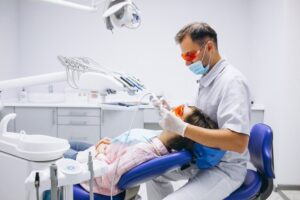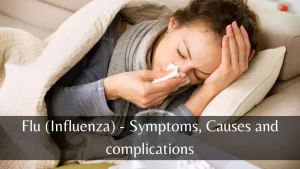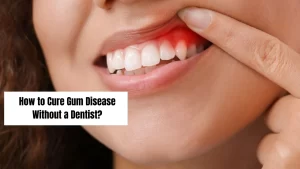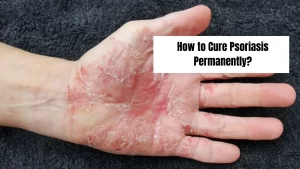
How to Cure Chapped Lips Fast?
Chapped lips can be a pesky and uncomfortable issue, especially during colder months. In this comprehensive guide, we’ll explore effective strategies to provide quick relief and help you cure chapped lips swiftly. From nourishing treatments to preventive measures, discover the secrets to achieving soft and smooth lips in no time.
Causes:
Chapped lips, also known as cheilitis, can be caused by various factors that contribute to the dryness and irritation of the delicate skin on the lips. Here are some common causes of chapped lips:
- Weather: Exposure to cold, dry air, especially during the winter months, can strip the moisture from your lips, leading to dryness and chapping.
- Dehydration: Insufficient water intake can result in overall dehydration, affecting the lips and making them prone to dryness.
- Lip Licking: Frequent licking of the lips may provide temporary relief but actually removes natural oils from the skin, worsening dryness and causing chapping.
- Sun Exposure: Overexposure to ultraviolet (UV) rays from the sun can lead to sunburn on the lips, causing them to become dry, red, and chapped.
- Harsh Lip Products: Certain lipsticks, lip glosses, and lip balms that contain harsh chemicals or allergenic ingredients can contribute to lip irritation and dryness.
- Allergies: Allergic reactions to certain lip care products, foods, or environmental factors can cause inflammation and chapping of the lips.
- Medical Conditions: Certain medical conditions such as eczema, psoriasis, diabetes, and thyroid disorders can disrupt the skin’s natural barrier, leading to dry and chapped lips.
- Medications: Some medications, like those used to treat acne or high blood pressure, can have a drying effect on the lips and skin.
- Mouth Breathing: Breathing through the mouth, especially during sleep or due to nasal congestion, can cause the lips to dry out.
- Vitamin Deficiencies: Inadequate intake of essential vitamins like vitamin B or vitamin C can contribute to dry and chapped lips.
Symptoms:
Chapped lips, characterized by dryness, cracking, and discomfort, exhibit several noticeable symptoms. Here are the common signs and symptoms of chapped lips:
- 必利勁
400;” aria-level=”1″>Dryness: The lips feel dry and rough to the touch, often lacking the natural smoothness. - Flaking: Small pieces of dry skin may peel away from the surface of the lips, leading to flakiness.
- Cracks: Fine lines or fissures can develop on the lips, often causing pain or sensitivity.
- Redness: The lips can appear reddened or inflamed due to irritation and dryness.
- Sensitivity: Chapped lips can be sensitive to touch, temperature changes, or exposure to certain substances.
- Swelling: In some cases, the lips might appear slightly swollen or puffy due to inflammation.
- Bleeding: Severe chapping can lead to cracks that break the skin’s surface, causing minor bleeding.
- Itching: The dryness and irritation of chapped lips can trigger an itching sensation.
- Peeling: The top layer of skin on the lips might peel away in small pieces.
- Soreness: The affected area can become sore due to dryness, cracking, and inflammation.
- Appearance: Chapped lips may have an uneven texture, with visible dry patches and potential redness.
The Need for Quick Relief
The need for quick relief from chapped lips is not only about restoring comfort but also preventing potential complications. Chapped lips, while often seen as a common issue, can lead to discomfort, pain, and even more severe problems if left untreated. Here’s why quick relief for chapped lips is essential:
- Pain and Discomfort: Chapped lips can be painful, causing discomfort when speaking, eating, or even moving the lips. Quick relief aims to alleviate this discomfort promptly.
- Preventing Cracks: Dry and chapped lips are prone to developing cracks or fissures. These cracks can deepen and even bleed, opening the way for infections and further discomfort.
- Infection Risk: Open cracks in chapped lips can become entry points for bacteria or fungi, leading to infections. Quick relief helps prevent such infections.
- Quality of Life: Chapped lips can hinder your daily activities and interactions. Swift relief improves your overall quality of life by restoring comfort and confidence.
- Appearance: Chapped lips can be unsightly, affecting your appearance and self-esteem. Quick relief helps maintain healthy, smooth lips.
- Preventing Habits: Discomfort from chapped lips might lead to habits like licking or biting the lips, which worsen the condition. Quick relief breaks this cycle.
- Optimal Healing: Providing relief early can aid in the natural healing process of the skin, helping lips recover more quickly.
- Preventing Complications: In severe cases, untreated chapped lips can lead to infections, bleeding, and chronic conditions. Quick relief minimizes the risk of complications.
Hydration: The Ultimate Solution
To ensure optimal hydration for your lips:
- Drink Water: Stay hydrated by drinking enough water throughout the day.
- Lip Balm: Use a good-quality, moisturizing lip balm regularly, especially in dry or cold environments.
- Avoid Irritants: Choose lip products without irritants like fragrances or allergenic ingredients.
- Humidifier: Use a humidifier indoors to maintain a more moisture-rich environment, especially during winter.
- Protect from Sun: Apply a lip balm with SPF before sun exposure to shield your lips from UV rays.
Exfoliation for Renewal
To effectively exfoliate chapped lips:
- Choose a Gentle Exfoliator: Opt for a lip scrub or make your own using natural ingredients like sugar or honey.
- Be Gentle: Apply the exfoliator in gentle, circular motions, avoiding harsh scrubbing that can further damage delicate lip skin.
- Moisturize Afterwards: After exfoliation, apply a moisturizing lip balm to lock in hydration and soothe the freshly exposed skin.
- Frequency: Exfoliate your lips 1-2 times a week, or as needed. Over-exfoliation can lead to irritation.
- Avoid Open Wounds: If your lips are severely cracked or bleeding, hold off on exfoliation until they’ve healed to prevent further damage.
- DIY Scrubs: Create a DIY lip scrub using ingredients like sugar, honey, olive oil, or coconut oil. Gently massage onto lips and rinse off.
Healing Ointments and Natural Remedies
Healing Ointments
Here’s why healing ointments are effective for chapped lips:
- Intensive Moisture: Healing ointments are designed to deeply moisturize the lips, providing immediate relief from dryness and discomfort.
- Barrier Protection: Ointments create a protective barrier over the lips, shielding them from harsh environmental factors like wind, cold, and dry air that can worsen chapping.
- Sealing in Moisture: Healing ointments lock in existing moisture, preventing further moisture loss and aiding the skin’s natural healing process.
- Emollient Properties: The emollient nature of ointments soothes and softens the lips, reducing pain, cracking, and irritation.
- Healing Ingredients: Many healing ointments contain ingredients like petroleum jelly, lanolin, shea butter, or beeswax, which have healing properties that aid in the repair of damaged skin.
- Non-Irritating: High-quality healing ointments are often fragrance-free and hypoallergenic, making them suitable for sensitive or irritated lips.
- Versatile Use: Healing ointments can be used not only for chapped lips but also for other dry skin areas on the body.
Natural Remedies:
- Coconut Oil: Coconut oil is a natural emollient that moisturizes lips and helps restore their suppleness.
- Honey: With its healing properties, honey can soothe chapped lips, promote skin renewal, and provide a protective barrier.
- Aloe Vera Gel: Aloe vera has anti-inflammatory properties that help reduce redness and irritation on chapped lips.
- Shea Butter: Shea butter is rich in vitamins and fatty acids, providing deep hydration and promoting healing.
- Cucumber Slices: Placing cucumber slices on the lips can hydrate and cool the skin, reducing inflammation and discomfort.
- Green Tea Bags: Applying a cooled green tea bag can offer antioxidants and soothe chapped lips.
- Sugar Scrub: A homemade sugar scrub gently exfoliates dead skin, preparing the lips for better moisture absorption.
Lip Protection and Preventive Measures
Here’s how to protect your lips and prevent chapped lips:
- Use Lip Balm:
- Apply a moisturizing lip balm with natural ingredients like beeswax, shea butter, or coconut oil.
- Choose a lip balm with SPF to protect your lips from sun damage.
- Stay Hydrated: Drink plenty of water throughout the day to maintain overall hydration, including your lips.
- Avoid Licking Your Lips: Licking your lips can strip away natural oils, leading to dryness. Resist the urge to lick them.
- Humidify Indoor Air: Use a humidifier indoors, especially during the colder months, to prevent the air from drying out your lips.
- Protect from Harsh Weather: Wear a scarf or use a fabric mask to shield your lips from cold winds and harsh weather conditions.
- Limit Sun Exposure: Use a lip balm with SPF when spending time outdoors to protect your lips from UV rays.
- Avoid Irritants: Be cautious with lip products that contain fragrances, dyes, or allergens that can worsen dryness.
- Balanced Diet: Consume a diet rich in vitamins, especially vitamin B and C, which promote healthy skin, including lip skin.
- Regular Lip Care: Incorporate a lip care routine into your daily regimen to ensure consistent hydration.
- Exfoliation: Gently exfoliate your lips using a lip scrub or a homemade mixture to remove dead skin cells.
- Avoid Harsh Toothpaste: If your toothpaste causes irritation around your mouth, consider switching to a gentler formula.
- Use Fragrance-Free Products: Opt for lip care products without added fragrances, as these can sometimes cause irritation.
- Avoid Overusing Matte Lipsticks: Matte lipsticks can be drying. Use them sparingly and make sure to moisturize before application.
- Protective Measures During Activities: Apply a lip balm before swimming, skiing, or engaging in activities that expose your lips to extreme conditions.
Consulting a Dermatologist
- Expert Diagnosis: A dermatologist can accurately diagnose the underlying cause of your chapped lips, which could be due to various factors such as allergies, underlying skin conditions, or lifestyle habits.
- Severe Chapping: If your chapped lips are causing significant pain, bleeding, cracking, or discomfort, a dermatologist can assess the severity and recommend appropriate treatments.
- Chronic Chapping: If your chapped lips have become a chronic issue that doesn’t respond to typical home remedies, a dermatologist can offer advanced solutions and preventive measures.
- Underlying Conditions: Dermatologists can identify underlying skin conditions that might contribute to chapped lips, such as eczema, psoriasis, or contact dermatitis.
- Personalized Treatment Plans: A dermatologist can tailor treatment plans to your specific needs, taking into account your skin type, medical history, and lifestyle.
- Prescription Medications: If your chapped lips require prescription-strength treatments or medications, a dermatologist can provide appropriate recommendations.
- Allergic Reactions: If you suspect your chapped lips are due to an allergic reaction to lip products or other substances, a dermatologist can conduct tests to identify allergens.
- Professional Advice: Dermatologists can provide guidance on lip care routines, suitable lip products, and lifestyle modifications to prevent future chapping.
- Monitoring Progress: If you’ve tried various treatments without improvement, a dermatologist can monitor your progress and adjust your treatment plan as needed.
Conclusion
Curing chapped lips fast is within reach when armed with the right strategies. By maintaining hydration, incorporating exfoliation and nourishing treatments, and avoiding aggravating factors, you can achieve soft and smooth lips in no time. Remember, consistency is key, and taking preventive measures can help you maintain healthy lips year-round. So, bid farewell to discomfort and embrace a confident smile with these quick and effective remedies.
FAQ
Q1: How can I prevent chapped lips?
Ans: Stay hydrated and use lip balms or moisturisers.
Q2: What are some common causes of chapped lips?
Ans: Sun exposure, dry air, licking lips, medical conditions.
Q3: How long does it take for chapped lips to heal?
Ans: Usually 2-3 weeks, but early treatment speeds up recovery.
Q4: Can chapped lips lead to infections?
Ans: Yes, if left untreated, chapped lips can become infected.
Q5: What should I do if lip balms don’t relieve my chapped lips?
Ans: Consult a healthcare provider for alternative treatments.





